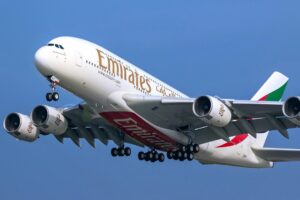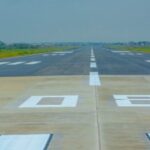
The Group Managing Director of Finchglow Holdings Limited and former President of National Association of Nigeria Travel Agencies (NANTA), Bankole Bernard, has explained that the United Arab Emirates (UAE) introduced stringent visa policy in order to prevent those that would come to the country to compromise security and engage in fraudulent activities from having access to its visas.
In July last year, the UAE lifted visa ban for Nigerians but introduced very strict visa regime that made it very difficult for many Nigerians to obtain visa and travel to the popular destinations, Dubai and other cities in the Emirates.
Bernard said the change in visa policy was to promote quality and not numerous travelers into the country, noting the visa restrictions policy has reduced the number of air travelers to the Asian country from Nigeria.
He added that that it has actually reduced the number of travelers to the Middle East country by 45 to 50 per cent, emphasising that those who travel now are high net worth individuals who fill up the first and business class cabins of Emirates Airlines, which also resumed flight operations to Nigeria last year.
Bernard told THISDAY at the weekend in Lagos that the change of focus from quantity to quality applicants by the UAE government was intentional, remarking that any airline on long haul flights that fills its first class and business class cabins is already on profit.
In 2021 and 2022 reports indicated that Nigerians were allegedly involved in cult clashes at different times in Dubai, prompting UAE to introduce drastic measures to curtail the number of Africans that visit the country.
THISDAY learnt the new visa requirements for Nigerian citizens travelling to the UAE include age restriction, minimum of $10,000 balance (or its equivalent in naira) in the applicant’s bank account, work permit visa of two years only, increased visa fee, confirmed onward ticket, hotel booking only valid for 48 hours.
Other restrictions are 96-hour visa issuance, sponsorship letter from a qualified sponsor with minimum salary requirements ranging from AED 4,000 to AED 10,000, (UAE currency), depending on the relationship between the sponsor and applicant, while the processing time is also delayed unlike in the past when it could be processed within 48 hours.
It could be recalled that before the outbreak of Covid-19 pandemic in 2020, the airline was operating three daily frequencies into Nigeria; two to the Murtala Muhammed International Airport (MMIA), Lagos and one to the Nnamdi Azikiwe International Airport (NAIA), Abuja, while its counterpart, Etihad Airways was flying into the Lagos airport daily.

After over two years of diplomatic impasse which was resolved by the Minister of Aviation and Aerospace Development, Festus Keyamo, Emirates Airlines returned to Nigeria on October 1, 2024, while Etihad Airways, the national carrier of UAE was yet to return to the country five years after suspending operations to Nigeria.
Bernard also explained that some tourists from Nigeria who could not meet the stringent measures of the new UAE Visa policy and other countries in Europe and the United States, now chose other destinations within Africa for tourism.
From his records, he said some Nigerian tourists now travel to Morocco, Egypt, Rwanda, Ethiopia and a few other countries on the continent for their holidays unlike in the past when everyone wanted to travel to Dubai, the UK and other European and US destinations.
“The United Arab Emirates government is a serious one because they consider the business of the government as a good business. So, restricting Nigerians from coming into their country, is more of a restriction that is placed on those that cannot afford it, but Nigerians are still going to Dubai. Those that have the money, they go to the UAE and they still do what they have to do.
“So, that has reduced the number of passengers going to Dubai by about 45 to 50 per cent, but as you know, in airline business, once you have your business class filled up, you have covered the cost.
“So, the UAE government is looking beyond the number of people that come in. The government is looking at the quality of people that come in to spend the money. They don’t need the crowd anymore; they are concerned about the quality.
“The UAE government started by first allowing everyone to come in, but now, they are more about the quality of people coming to Dubai and there is nothing absolutely wrong with that.
“They don’t want anybody to act as a burden on them. Those are the measures they put in place. They are not looking for poor people, but quality people.
“The economy class has reduced significantly, but the business and first classes are constantly filled up. Yet, they are operating and they are not complaining,” Bernard said.
THISDAY






